On September 4, 2024, the School of Juris Master hosted an guest lecture titled “AI Governance in the European Union” at Room 0315 of the main teaching building at the Xueyuanlu Campus. The keynote speaker was Professor Maria Lillà Montagnani from Bocconi University, Italy. The lecture was chaired by Professor Wensheng Han, Chair of the School Council, with Dr. Xian Zhang as the discussant. Dean, Professor Shenjian Xu, attended the event and delivered opening remarks. Students from the 2022 and 2023 class participated in the lecture.
At the beginning of the lecture, Professor Wensheng Han introduced Professor Montagnani’s academic background and extended a warm welcome to her on behalf of the School. Professor Wensheng Han also mentioned about the School delegation’s visit to Bocconi University a few months prior, expressing sincere gratitude for the support of Professor Montagnani and Bocconi University.
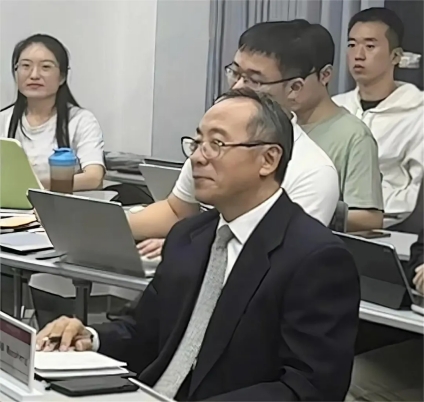
Professor Montagnani commenced her lecture by outlining the foundational framework for AI governance in the European Union. She summarized the relevant policies and regulations into three pillars: increasing public and private investment in the AI industry, preparing for socio-economic transformation, and ensuring the establishment of appropriate ethical and legal frameworks.
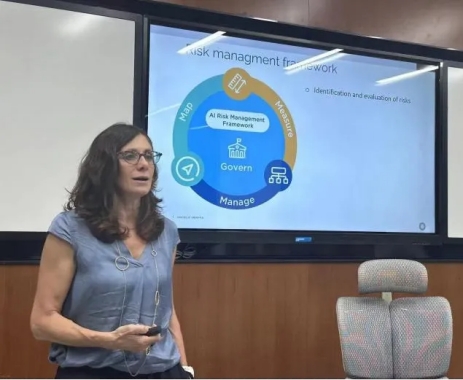
She emphasized that the core of EU AI governance lies in building human-centered AI, which fosters trust in AI systems. This trust is constructed through three interconnected measures: establishing a legal framework grounded in fundamental rights, improving the civil liability framework, and revising sectoral safety legislation.
Discussing the current state of policies, Professor Montagnani analyzed the EU’s preventive and compensatory approaches. The EU AI Act employs a risk-based classification system with differentiated regulatory intensities to ensure that AI providers and deployers anticipate potential risks before application. Complementary measures, such as the Artificial Intelligence Liability Directive and the Product Liability Directive, provide avenues for remedy after risks materialize, forming a comprehensive governance framework. She also presented examples of AI systems classified under different risk levels.
Professor Montagnani provided an in-depth analysis of the EU AI Act, focusing on five aspects: the definition of AI, prohibited types of AI, obligations for high-risk AI systems and their responsible parties, characteristics of general-purpose AI systems, and the Act’s applicability outside EU jurisdictions. She praised the comprehensive definition of AI, which encompasses all existing types, and the clear delineation of prohibited AI systems, ensuring alignment with the risk classification framework. The obligations for responsible parties in high-risk AI systems are meticulously designed, enabling effective regulation while maintaining distinct boundaries with prohibited systems. The provisions on general-purpose AI systems and the responsibilities of stakeholders demonstrate the EU’s leadership in AI governance and provide a basis for the Act’s adoption and adaptation in non-EU jurisdictions. Furthermore, the Act specifies conditions under which it applies to jurisdictions outside the EU.
Concluding her lecture, Professor Montagnani revisited the dual perspectives of preventive and compensatory measures. She observed that the EU AI Act prioritizes the protection of fundamental rights, leaning toward a regulatory approach. While this may slow the pace of AI technological development, it reflects the ongoing need to balance rights protection and innovation promotion.
Dr. Xian Zhang offered her commentary on the lecture, noting that AI governance is a highly debated global topic that extends beyond legal and ethical considerations to include the coordination of diverse stakeholders and values. She emphasized the importance of international collaboration and exchange among jurisdictions in constructing AI governance frameworks to better harness this transformative yet potentially risky technology. Dr. Xian Zhang also shared insights from her discussions with colleagues from technical disciplines on the transparency of AI data and algorithms. These discussions highlighted the inherent complexities in reconciling the interests of AI providers with those of the public. She expressed gratitude for Professor Montagnani’s detailed interpretation of the EU AI Act and underscored the value of sharing legal achievements across jurisdictions to advance AI governance globally.
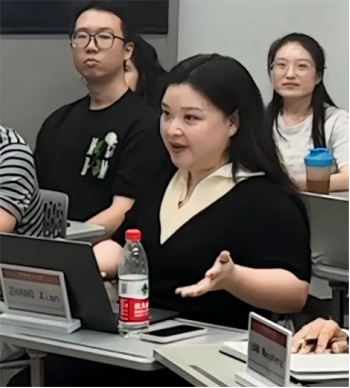
During the interactive Q&A session, participating students posed thought-provoking questions, and Professor Wensheng Han had a deep discussion with Professor Montagnani on the EU’s regulatory role in promoting AI innovation.
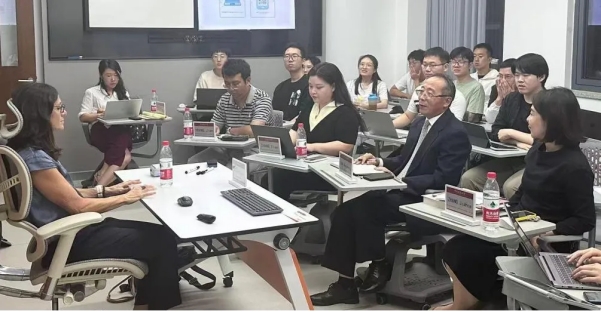
Dean, Professor Shenjian Xu concluded the event with closing remarks, thanking Professor Montagnani for her insightful presentation. He introduced the School’s initiatives in talent cultivation, scientific research, and international collaboration, expressing appreciation for Bocconi University’s strong support of the School’s international exchange efforts. He looked forward to further, in-depth exchanges between the two Schools.
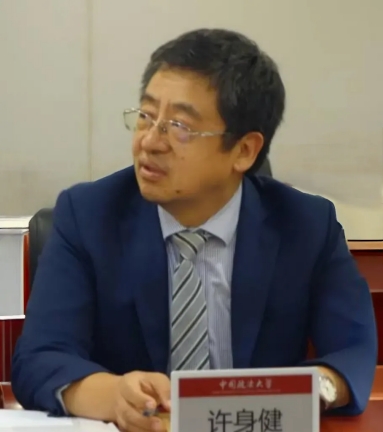
The lecture ended successfully amid warm applause.